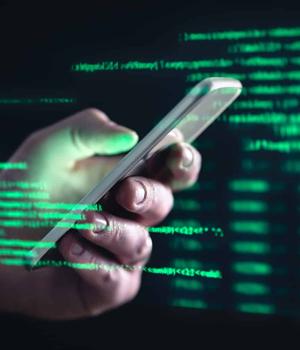Security News > 2000 > January > Judge Says Recording of Electronic Chats Is Legal

Forwarded From: jeradonah http://www.nytimes.com/library/tech/00/01/cyber/cyberlaw/14law.html January 14, 2000 CYBER LAW JOURNAL By CARL S. KAPLAN Judge Says Recording of Electronic Chats Is Legal In 12 states, it is illegal to record your own telephone conversations without the consent of the person at the other end of the line. Now a judge in Washington, one of those privacy-conscious states, has ruled that the state's law does not apply to the new world of e-mail and online chats. That decision, which appears to be the first of its kind, represents a bad precedent for online privacy, some legal experts say. But others argue that e-mail messages by their nature are forwarded and stored on a recipient's computer, so e-mail users automatically agree to the recording of their messages when they choose the medium. The novel legal issue of how to characterize e-mail communication arose in a recent criminal case in Washington's Spokane County. The police there said they received information that 26-year-old Donald Townsend was seeking sex with minors that he met online. Setting up a sting operation on the Internet, Detective Jerry Keller pretended to be a 13-year-old girl named Amber with a Hotmail e-mail account and a screen name of "ambergirl87," according to legal papers. Detective Keller, in the role of Amber, sent messages to Townsend, kicking off an e-mail exchange between the two parties -- about seven messages in all, said Deputy County Prosecutor Patti Walker. In addition, "Amber" and Townsend had a series of electronic conversations on ICQ, an Internet chat network owned by America Online that allows users to communicate in real time. While ICQ can be used to create a public chat room, the conversations that took place between Keller and Townsend were private chats that were inaccessible to others, the legal papers say. Over three days last June, Townsend sent 86 ICQ messages to Keller, Walker said in a telephone interview. In some of them, he "was setting up a date with a fictitious 13-year-old and trying to have sex with her," she said. Keller saved the ICQ communications on his computer and later printed them out for use as potential evidence in the case, after Townsend tried to meet "Amber" in a bar. Keller also stored and printed out the e-mail messages he received from Townsend. Townsend was eventually arrested and charged with attempted rape of a minor, possession of child pornography and other crimes. Before trial, three Spokane County public defenders made a clever motion: they sought to suppress the use of the police print-outs of the e-mail messages and ICQ chats. Under the Washington Privacy Act, argued Mark Hannibal, Kathleen Moran and David Blair-Loy, there is a very strong prohibition on the interception or recording of private communications by phone, radio, telegraph or other device between two or more people without the consent of all of the parties. This "all-party consent" rule makes Washington different than most other states, where recording of a private conversation is lawful if just one party consents. In the Townsend case, the lawyers said, Washington's privacy law clearly applied to private communications via a computer, which should be regarded as a "device" under the law. Also, since Kelly did not have a special court order allowing him to record Townsend's online messages, and because Townsend never gave his consent, the messages could not be used in a trial, they said. In a ruling last month, Judge Kathleen M. O'Connor of Spokane County Superior Court rejected those arguments. She reckoned that the Washington privacy law does not apply to computer communications because the words of the statute do not specifically mention computers as a covered device. Judge O'Connor went on to conclude that even if the act applied in this case, it could be said that the defendant implicitly consented to Keller's recording of his e-mail and ICQ chat. After all, the judge said, Townsend chose to "communicate via e-mail and/or ICQ . . . with the knowledge that the computer itself is a transmission and recording device. "From that knowledge, it may be presumed that the defendant knew that the intended recipients of the conversation may retain and/or disseminate messages received from the defendant," the judge wrote. "In an age where millions of e-mails are sent daily, it is unreasonable for a user to expect that a recipient will not save, transmit and/or copy an e-mail or an ICQ (chat) communication." [...] ISN is sponsored by Security-Focus.COM
News URL
http://www.nytimes.com/library/tech/00/01/cyber/cyberlaw/14law.html